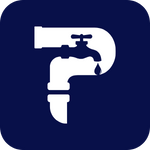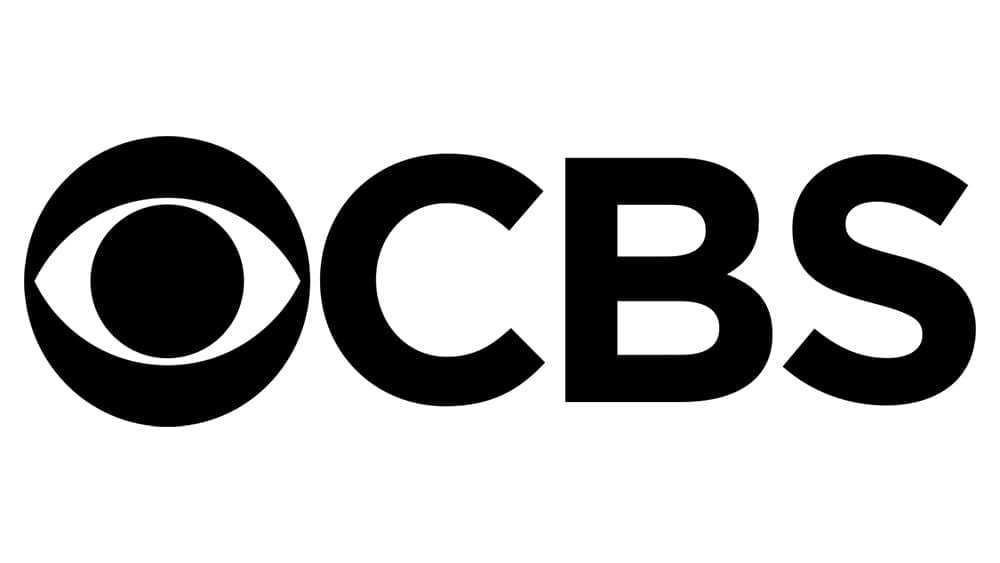Increasing HVAC Efficiency: A Complete Guide to Conversion Optimization In the current world, where energy expenses are rising & environmental concerns are becoming more pressing, it is imperative that both residential & commercial properties optimize their HVAC (heating, ventilation, and air conditioning) systems. Energy efficiency, indoor air quality, and general comfort are all improved by HVAC conversion optimization. This article explores the different facets of HVAC conversion optimization, emphasizing its significance, ways to make it better, and how maintenance and technology contribute to peak performance. The practice of improving the functionality and efficiency of heating, ventilation, and air conditioning systems is known as HVAC conversion optimization. To do this, current systems must be examined for inefficiencies & strategies to increase operational efficacy and energy consumption must be put into place.
Key Takeaways
- Understanding HVAC conversion optimization is crucial for maximizing energy efficiency and cost savings.
- Energy efficiency in HVAC systems is important for reducing environmental impact and operational costs.
- Identifying key areas for improvement in HVAC efficiency, such as insulation and air sealing, can lead to significant energy savings.
- Implementing conversion optimization strategies, such as upgrading to high-efficiency equipment, can greatly improve HVAC efficiency.
- Utilizing technology, such as smart thermostats and energy management systems, can enhance HVAC efficiency and control.
A system that not only provides for a space's heating and cooling requirements but also does so in a way that minimizes energy waste and lowers expenses is the aim. It is crucial to comprehend the elements that comprise an HVAC system in order to completely appreciate the idea of HVAC conversion optimization. These consist of the ventilation systems, ductwork, thermostats, air conditioner, furnace, or boiler. Every part of the system is essential to its overall effectiveness.
Owners of real estate can ensure a comfortable indoor environment and save a substantial amount of energy by optimizing these factors. HVAC systems must be energy-efficient for a number of reasons. Most importantly, it results in significant energy bill savings. As stated by the U. A.
According to the Department of Energy, almost half of the energy used in a home is used for heating and cooling. Homeowners and businesses can drastically cut their monthly costs by optimizing HVAC systems for energy efficiency. Also, HVAC systems with low energy consumption support environmental sustainability. Energy consumption must be reduced as climate change becomes more widely recognized.
Metrics Before Conversion Optimization After Conversion Optimization Average HVAC System Efficiency 75% 85% Energy Consumption 1000 kWh/month 800 kWh/month Customer Conversion Rate 5% 8% Cost Savings 200/month 300/month Power consumption is reduced by efficient systems, which lowers greenhouse gas emissions related to the production of electricity. Property owners can save money & contribute to environmental protection by investing in energy-efficient HVAC systems. Finding important areas for improvement is crucial to optimizing an HVAC system. Inadequate insulation is among the most frequent causes of inefficiency.
Without proper insulation, heated or cooled air may escape from a building, making it more difficult for the HVAC system to maintain the proper temperatures. Finding potential areas with inadequate insulation can be aided by carrying out an energy audit. The HVAC equipment's age and condition should also be taken into account. Newer models that use cutting-edge technology tend to be more efficient than older ones. Over time, switching to high-efficiency units can result in significant energy savings.
Regular inspections can also assist in spotting problems like clogged filters or broken parts that could impair system functionality. It's time to put conversion optimization tactics into practice after the most important areas for development have been determined.
Installing programmable thermostats, which let users configure precise heating & cooling schedules based on occupancy patterns, is one efficient strategy.
This makes sure that when areas are empty, no energy is wasted.
Sealing ductwork is an additional tactic to stop air leaks. Significant energy loss can result from leaky ducts because conditioned air escapes before it reaches its destination. In order to improve indoor air quality and system efficiency, property owners can seal these leaks with metal tape or mastic sealant. Purchasing variable speed motors for fans & compressors can also result in more accurate temperature control and lower energy usage.
Compared to conventional single-speed units, these motors operate more efficiently because they change their speed in response to demand. Technology has been essential in improving HVAC efficiency in recent years. Leading this technological revolution are smart thermostats. With time, these gadgets pick up on user preferences and can automatically modify settings for maximum efficiency & comfort. A lot of smart thermostats can also be operated remotely through apps on smartphones, giving users the ability to keep an eye on and modify their HVAC systems from any location.
Also, HVAC is one of the many building functions that building automation systems (BAS) combine onto a single platform. This enables energy consumption across several systems in a building to be monitored & controlled in real time. Property managers can swiftly spot inefficiencies and make data-driven decisions to maximize performance by using BAS. The integration of IoT (Internet of Things) sensors into HVAC systems represents another technological breakthrough.
By providing useful information on temperature, humidity, and air quality, these sensors allow for proactive maintenance and modifications that improve system performance as a whole. In order to maximize HVAC efficiency, regular maintenance is necessary. A well-maintained system uses less energy and performs better than one that is neglected. Regular maintenance can stop minor problems from developing into more expensive repairs or replacements.
Examples of these tasks include cleaning coils, changing air filters, & checking refrigerant levels. Also, arranging for yearly professional inspections can assist in spotting possible issues before they affect system functionality. In order to guarantee optimal operation, technicians can clean components, evaluate the system's general health, and make the required adjustments during these inspections. Instructing residents on appropriate usage habits that enhance system performance is also crucial.
Simple things like using ceiling fans or drawing the blinds on hot days can help HVAC systems work better and provide more comfort while using less energy. It is essential to track and evaluate conversion optimization efforts' effects on HVAC performance in order to assess their efficacy. Numerous metrics, including information on energy use, indoor air quality readings, and surveys of occupant comfort, can be used to accomplish this. Real-time insights into the HVAC system's energy consumption in relation to benchmarks or prior periods can be obtained through energy monitoring tools. Analyzing this data allows property owners to determine whether their optimization tactics are producing the intended outcomes. Also, monitoring maintenance logs & system performance over time can reveal patterns that guide further optimization initiatives.
By routinely analyzing these metrics, the HVAC system can be continuously improved and kept operating efficiently for the duration of its life. The advantages of HVAC conversion optimization in a variety of industries are demonstrated by numerous case studies. An example of a comprehensive energy management program is the installation of smart controls and high-efficiency HVAC units in a commercial office building in New York City.
Thus, in just one year, the building's energy consumption was reduced by thirty percent. In a similar vein, a California school district made investments in state-of-the-art HVAC equipment and routine facility maintenance. After putting these changes into place, the district reported better indoor air quality & a 25% drop in energy expenses. These success stories demonstrate the advantages for occupant comfort and health as well as the financial gains from HVAC system optimization.
The trend toward optimizing HVAC conversion will only increase as more businesses realize how crucial energy efficiency is to their operations. In conclusion, improving HVAC systems through conversion techniques is crucial for raising environmental sustainability, cutting expenses, and improving energy efficiency. Property owners can optimize the performance of their HVAC systems by identifying critical areas for improvement, putting effective strategies into place, leveraging cutting-edge technology, and setting maintenance priorities. Action must be taken immediately by both individuals and organizations as we transition to a more energy-conscious future. Whether you're a business trying to increase operational efficiency or a homeowner trying to lower utility bills, investing in HVAC conversion optimization is a step toward a more economical and sustainable future.
Don't hesitate; get started on the path to more efficient HVAC right now!
If you are looking to improve your HVAC conversion optimization, you may also be interested in learning about plumbing and HVAC local SEO strategies in Boston, Massachusetts. Local SEO can help your business rank higher in search engine results, making it easier for potential customers to find you online. Check out this article for more information on how to boost your online presence and attract more customers in the Boston area.
FAQs
What is HVAC conversion optimization?
HVAC conversion optimization refers to the process of improving the efficiency and performance of heating, ventilation, and air conditioning (HVAC) systems to maximize energy savings and reduce operational costs.
Why is HVAC conversion optimization important?
HVAC systems account for a significant portion of a building's energy consumption. By optimizing these systems, building owners can reduce energy usage, lower utility bills, and minimize their environmental impact.
What are some common strategies for HVAC conversion optimization?
Common strategies for HVAC conversion optimization include upgrading to high-efficiency equipment, implementing smart controls and automation, improving insulation and sealing, and conducting regular maintenance and tune-ups.
How can HVAC conversion optimization benefit building owners?
HVAC conversion optimization can benefit building owners by reducing energy costs, improving indoor comfort and air quality, extending the lifespan of HVAC equipment, and increasing the overall value of the property.
What are the potential challenges of HVAC conversion optimization?
Challenges of HVAC conversion optimization may include the initial investment required for equipment upgrades, the need for specialized expertise to implement optimization strategies, and the potential disruption to building occupants during the optimization process.
How can building owners determine if HVAC conversion optimization is right for their property?
Building owners can determine if HVAC conversion optimization is right for their property by conducting an energy audit, assessing the current performance of their HVAC systems, and consulting with HVAC professionals to identify potential optimization opportunities.






